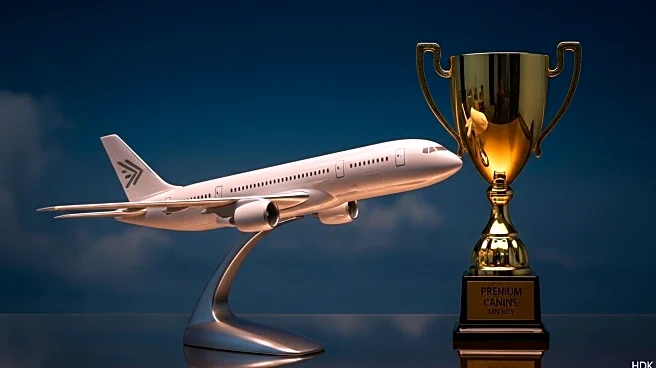What's Happening?
Airbus has achieved a significant milestone in the aviation industry by surpassing Boeing's 737 to become the most-delivered jetliner in history. This achievement marks a pivotal shift in the competitive landscape of global commercial aviation. The milestone was reached when Airbus delivered an A320 jet to Saudi carrier Flynas, bringing the total number of A320 family aircraft delivered to 12,260 since its introduction in 1988. This development is confirmed by data from UK-based consultancy Cirium, which is widely recognized in the aviation sector. The A320 family has been in service for 37 years, and its rise from a market challenger to an industry leader represents a notable victory for Airbus, especially considering Boeing's 737 had a two-decade head start.
Why It's Important?
The overtaking of Boeing's 737 by Airbus's A320 signifies a major shift in the aerospace industry, particularly in the lucrative single-aisle aircraft market. This segment is crucial as it forms the backbone of most airlines' fleets, operating the majority of short- and medium-haul routes globally. Airbus's ability to surpass Boeing's longstanding record reflects years of intense competition between the two companies. This development could influence airline purchasing decisions, potentially affecting Boeing's market share and profitability. It also highlights Airbus's strategic success in expanding its market presence and adapting to industry demands, which could lead to further innovations and competitive strategies in the aviation sector.
What's Next?
The shift in dominance from Boeing to Airbus in the narrow-body aircraft market may prompt Boeing to reassess its strategies and product offerings to regain its competitive edge. Airlines might reconsider their fleet compositions, potentially favoring Airbus models for their efficiency and popularity. This could lead to increased investment in Airbus's production capabilities and further advancements in aircraft technology. Additionally, the competitive dynamics between these aerospace giants are likely to intensify, with both companies striving to innovate and capture market share in emerging markets and regions.
Beyond the Headlines
The achievement by Airbus not only impacts the commercial aviation market but also reflects broader trends in global manufacturing and international trade. Airbus's success may encourage other European manufacturers to challenge American dominance in various sectors, fostering a more balanced global economic landscape. Furthermore, this development could influence employment patterns and economic growth in regions where Airbus has significant manufacturing operations, potentially leading to increased job opportunities and economic development.









